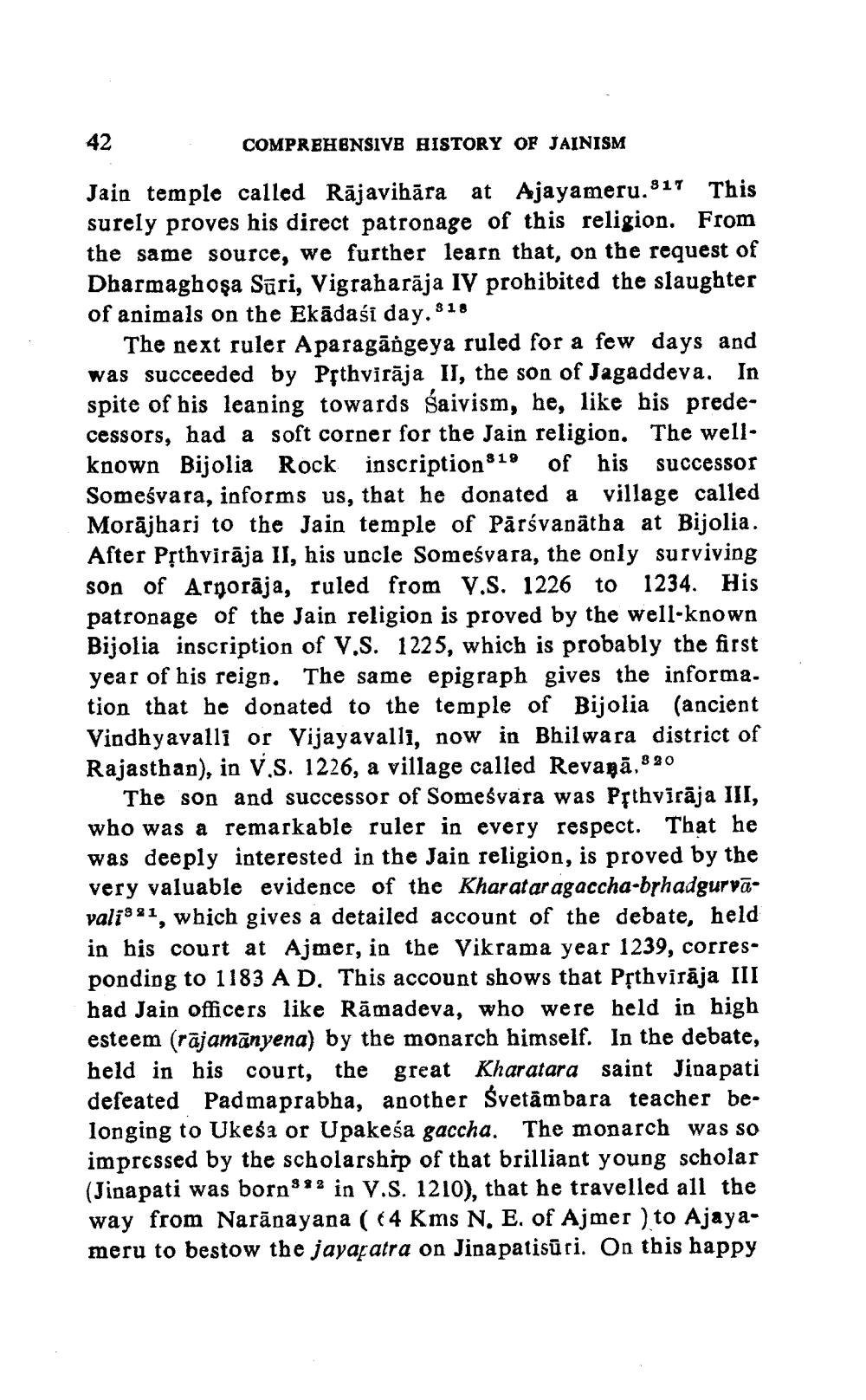________________
COMPREHENSIVB HISTORY OF JAINISM
Jain temple called Rājavibāra at Ajayameru.817 This surely proves his direct patronage of this religion. From the same source, we further learn that, on the request of Dharmaghoşa Sūri, Vigraharāja IV prohibited the slaughter of animals on the Ekādasi day.8 18
The next ruler Aparagāngeya ruled for a few days and was succeeded by Ppthvirāja II, the son of Jagaddeva. In spite of his leaning towards saivism, he, like his predecessors, had a soft corner for the Jain religion. The wellknown Bijolia Rock inscription 818 of his successor Someśvara, informs us, that he donated a village called Morājhari to the Jain temple of Pärśvanātha at Bijolia. After Pșthvirāja II, his uncle Someśvara, the only surviving son of Arnorāja, ruled from V.S. 1226 to 1234. His patronage of the Jain religion is proved by the well-known Bijolia inscription of V.S. 1225, which is probably the first year of his reign. The same epigraph gives the informa. tion that he donated to the temple of Bijolia (ancient Vindhyavalli or Vijayavalli, now in Bhilwara district of Rajasthan), in V.S. 1226, a village called Revaņā,3 20
The son and successor of Someśvara was Pfthviraja III, who was a remarkable ruler in every respect. That he was deeply interested in the Jain religion, is proved by the very valuable evidence of the Kharataragaccha-brhadgurvāvali8 21, which gives a detailed account of the debate, held in his court at Ajmer, in the Vikrama year 1239, corresponding to 1183 A D. This account shows that Pfthvirāja III had Jain officers like Rāmadeva, who were held in high esteem (rājamānyena) by the monarch himself. In the debate, held in his court, the great Kharatara saint Jinapati defeated Padmaprabha, another Svetām bara teacher belonging to Ukeśa or Upakeśa gaccha. The monarch was so impressed by the scholarship of that brilliant young scholar (Jinapati was born 982 in V.S. 1210), that he travelled all the way from Narānayana ( (4 Kms N. E. of Ajmer ) to Ajayameru to bestow the jayapatra on Jinapatisūri. On this happy




